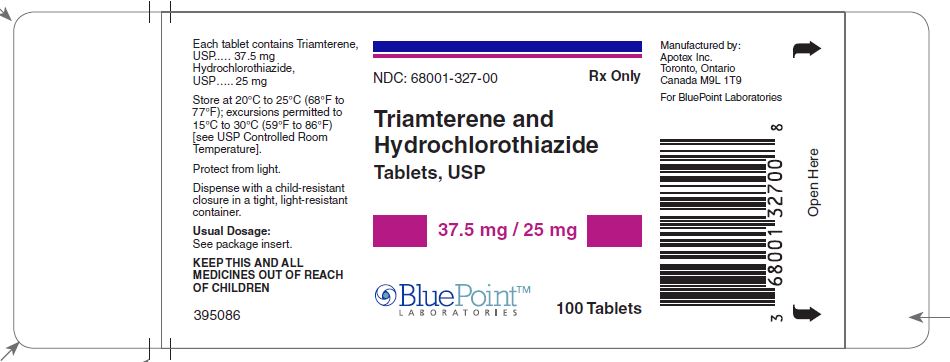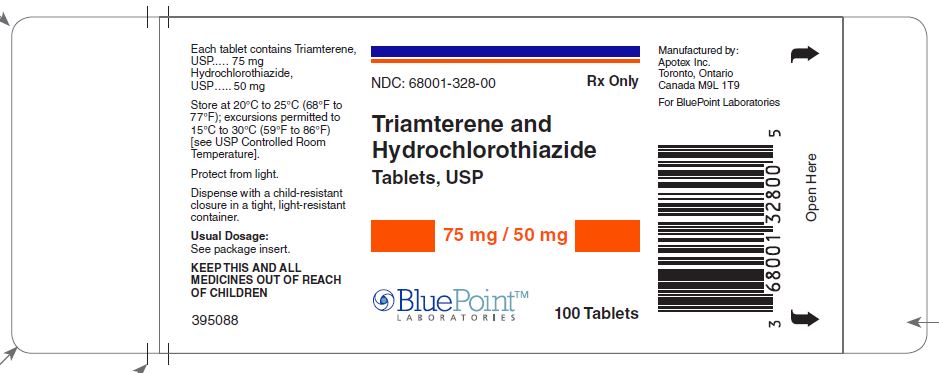
Triamterene And Hydrochlorothiazide Tablet while Breastfeeding
What is Triamterene And Hydrochlorothiazide Tablet used for?
I am currently breastfeeding and I want to know if using Triamterene And Hydrochlorothiazide Tablet is safe for my kid? Does it have any effect on milk production?

Nursing Mothers Thiazides and triamterene in combination have not been studied in nursing mothers. Triamterene appears in animal milk and this may occur in humans. Thiazides are excreted in human breast milk. If use of the combination drug product is deemed essential, the patient should stop nursing.
Triamterene And Hydrochlorothiazide Tablet Breastfeeding Analsys
Triamterene while Breastfeeding
Low RiskCAS Number: 396-01-0
Long-term treatment with diuretic drugs (particularly those Thiazides with long lasting effect and loop-acting drugs) may inhibit lactation. Use a lower dose as possible, especially during the first postnatal month.I has been marketed in association to Furosemide in Spain.
Hydrochlorothiazide while Breastfeeding
SafeCAS Number: 58-93-5
Thiazide diuretic drug. Excretion into breast milk is clinically non-significant. No side-effects were observed in a one-month old breastfed baby whose mother was treated with this medication. Drug level in the plasma of this child was undetectable. Long-term treatment with diuretic drugs (particularly Thiazide type ones with long-lasting effect and loop-acting mechanism) may inhibit lactation, mostly if lactation is not well-established yet. Use as lower dose as possible, especially during the first postnatal month. American Academy of Pediatrics 2013: Maternal Medication Usually Compatible With Breastfeeding. WHO Model List of Essential Drugs 2002: Compatible with breastfeeding.
Triamterene And Hydrochlorothiazide Tablet Breastfeeding Analsys - 2
Triamterene while Breastfeeding
CAS Number: 396-01-0
If triamterene is required by the mother, it is not a reason to discontinue breastfeeding. However, because no information is available on the use of triamterene during breastfeeding, an alternate drug may be preferred.
Hydrochlorothiazide while Breastfeeding
CAS Number: 58-93-5
Hydrochlorothiazide doses of 50 mg daily or less are acceptable during lactation. Intense diuresis with large doses may decrease breastmilk production.

What if I already have used Triamterene And Hydrochlorothiazide Tablet?
Triamterene And Hydrochlorothiazide Tablet is in the category of low risk, if you have already used it then its not a big deal if health and behavior of baby is good. However your health care provider shall be aware of the fact that you have used Triamterene And Hydrochlorothiazide Tablet so you should inform him based on your convenience.
My health care provider has asked me to use Triamterene And Hydrochlorothiazide Tablet, what to do?
Though Triamterene And Hydrochlorothiazide Tablet dose not comes in category of safe drugs rather it comes in category of low risk but if your doctor is aware that you are breastfeeding your baby and has still recommended it then its advantages must be outweighing the risks.
If I am using Triamterene And Hydrochlorothiazide Tablet, will my baby need extra monitoring?
Not much monitoring required while using Triamterene And Hydrochlorothiazide Tablet
Who can I talk to if I have questions about usage of Triamterene And Hydrochlorothiazide Tablet in breastfeeding?
US
National Womens Health and Breastfeeding Helpline: 800-994-9662 (TDD 888-220-5446) 9 a.m. and 6 p.m. ET, Monday through Friday
UK
National Breastfeeding Helpline: 0300-100-0212 9.30am to 9.30pm, daily
Association of Breastfeeding Mothers: 0300-330-5453
La Leche League: 0345-120-2918
The Breastfeeding Network supporter line in Bengali and Sylheti: 0300-456-2421
National Childbirth Trust (NCT): 0300-330-0700
Australia
National Breastfeeding Helpline: 1800-686-268 24 hours a day, 7 days a week
Canada
Telehealth Ontario for breastfeeding: 1-866-797-0000 24 hours a day, 7 days a week
